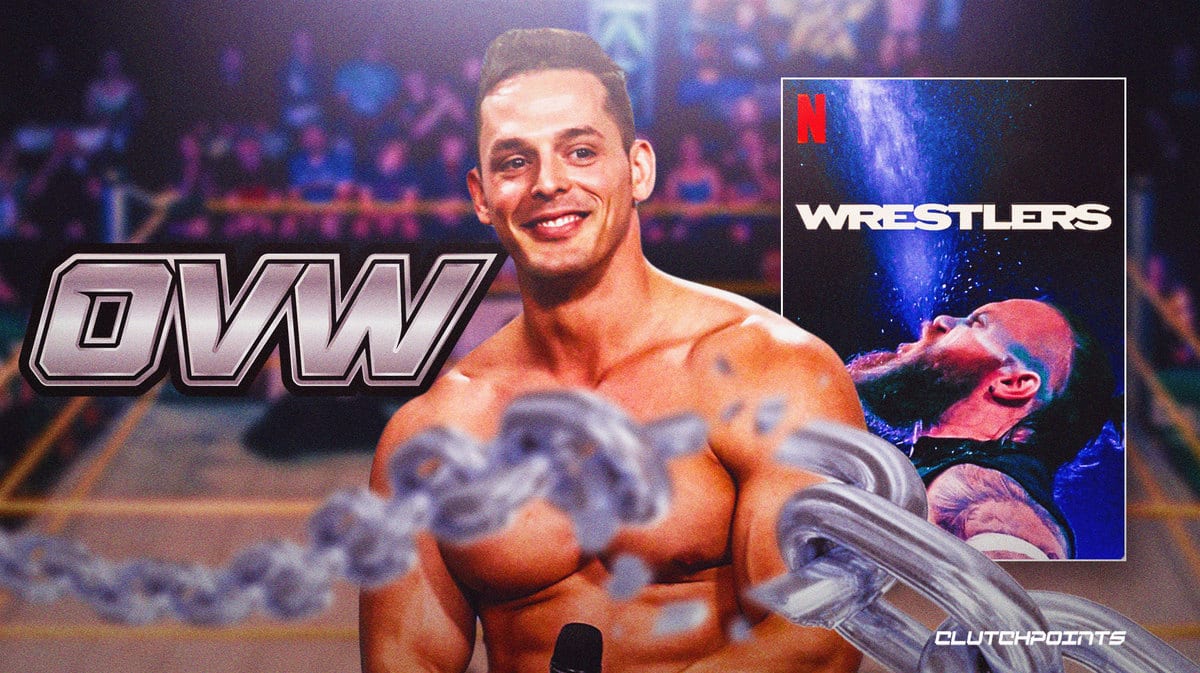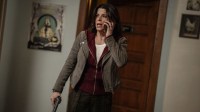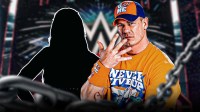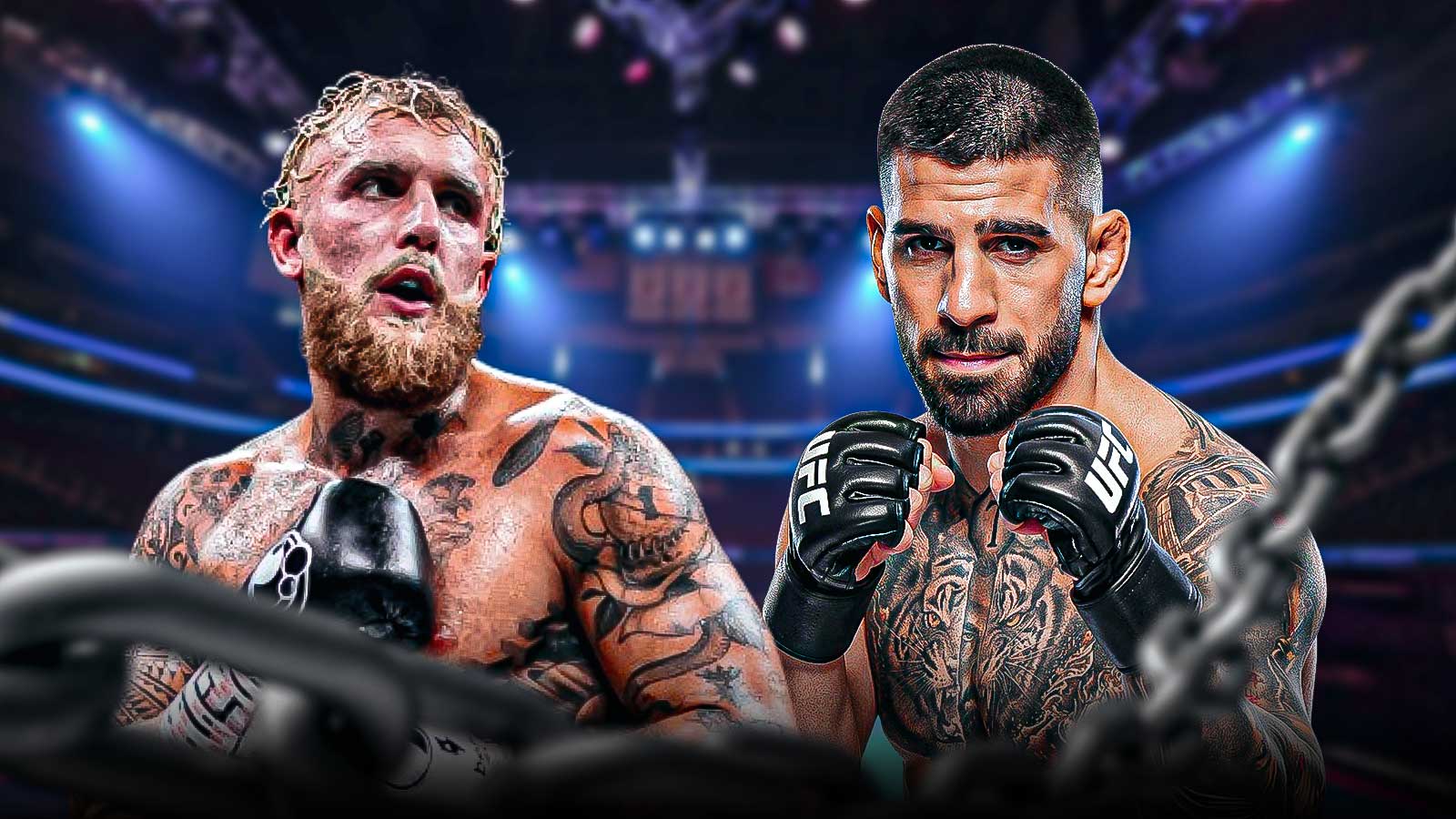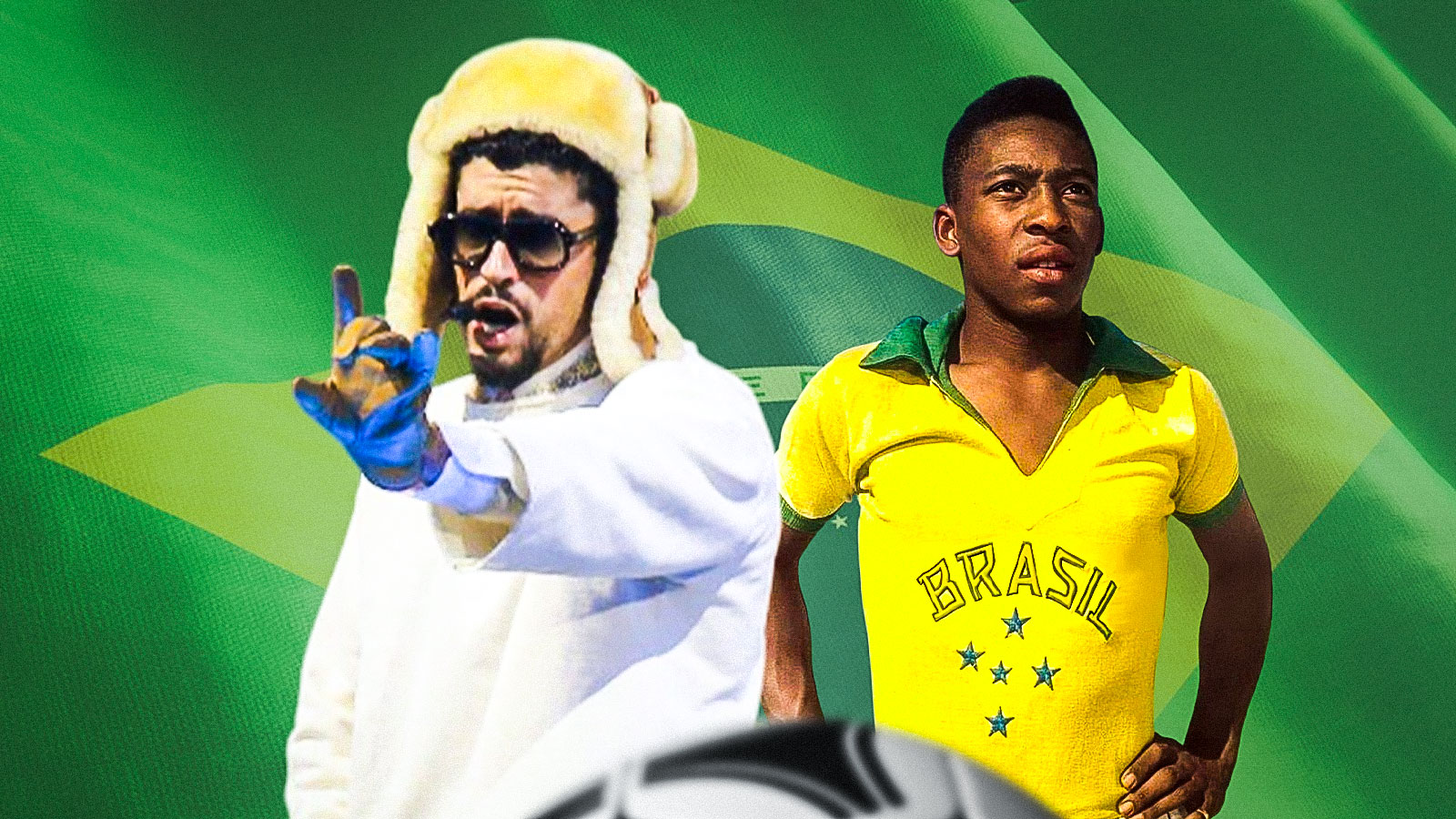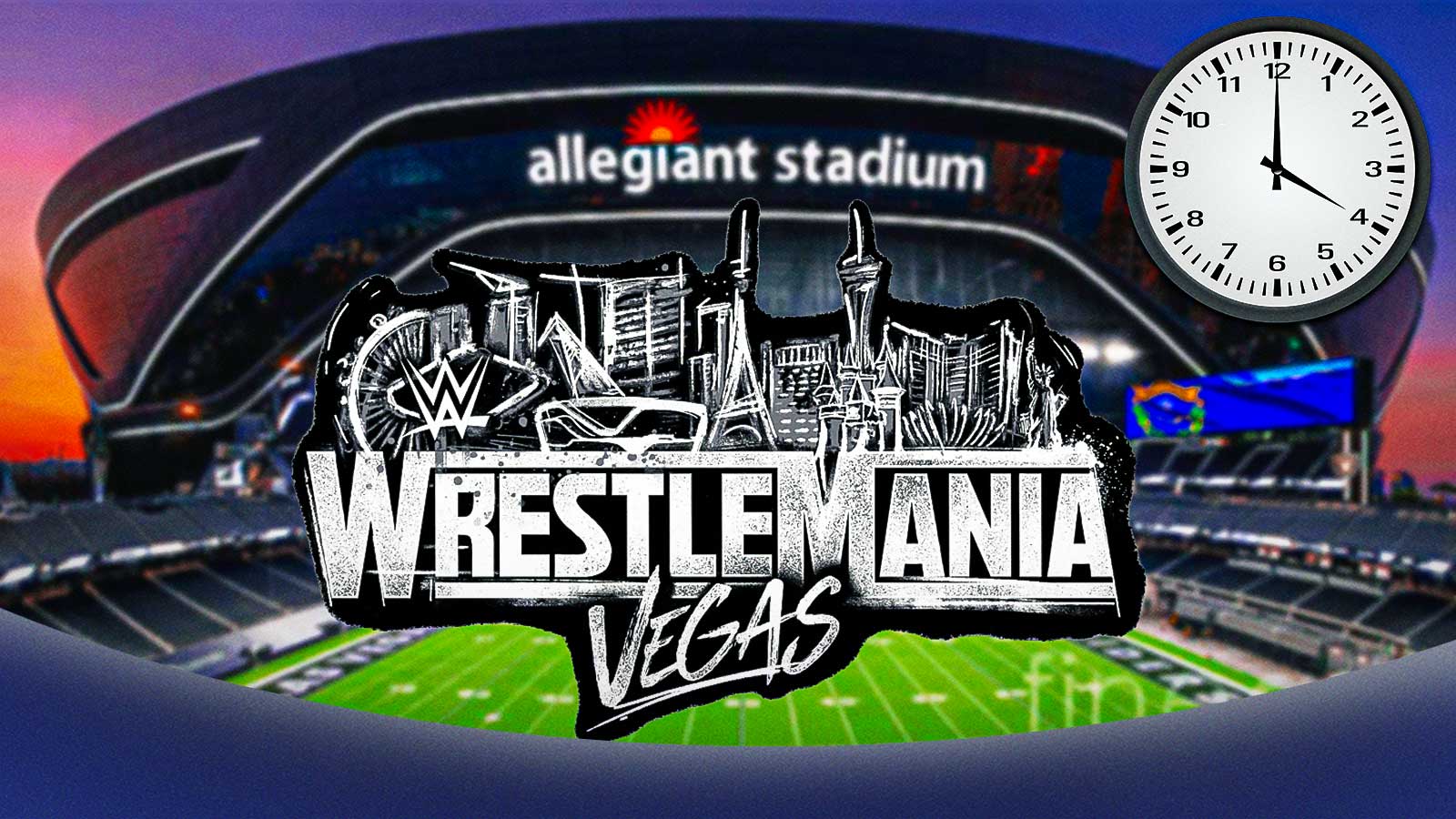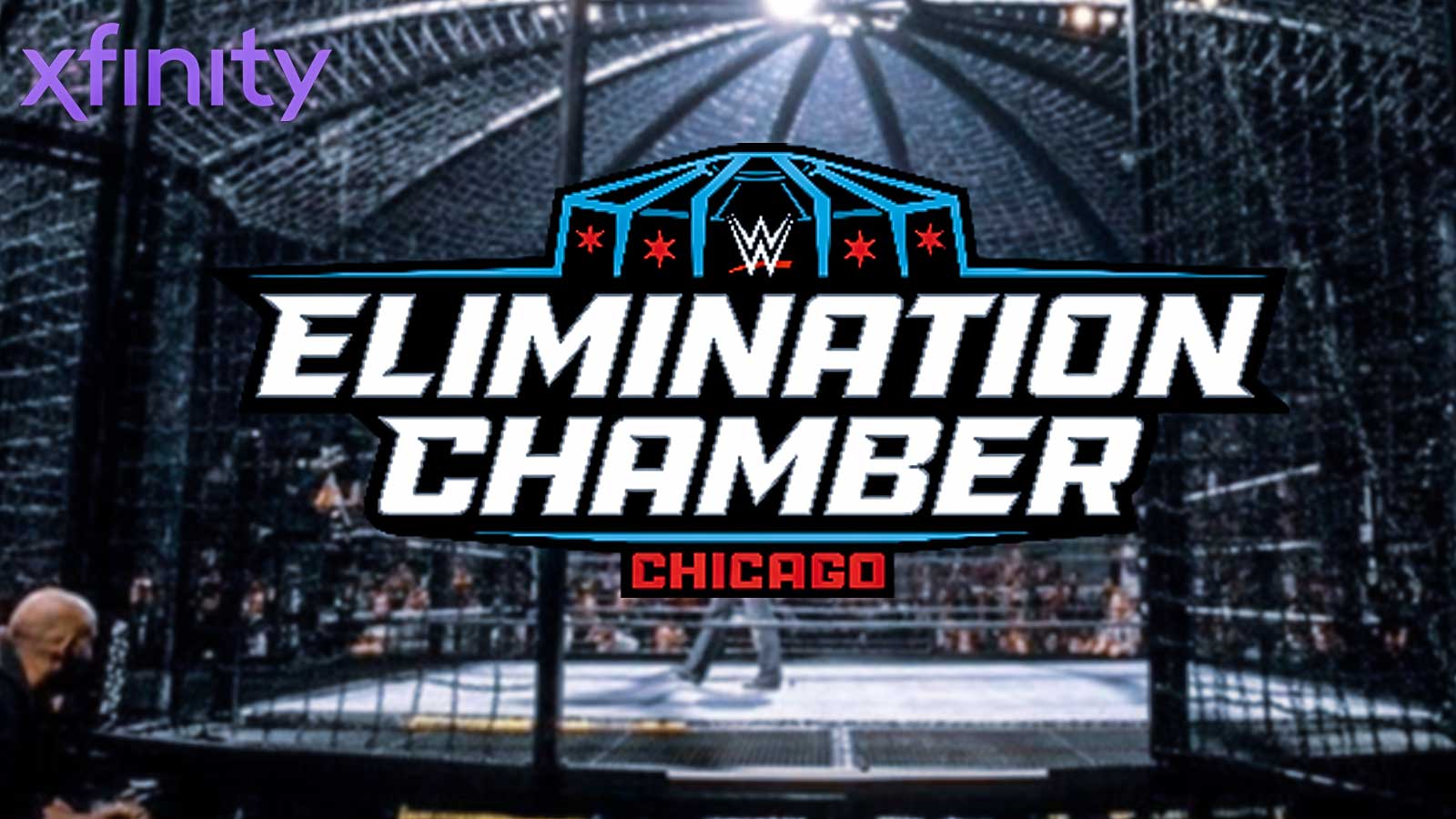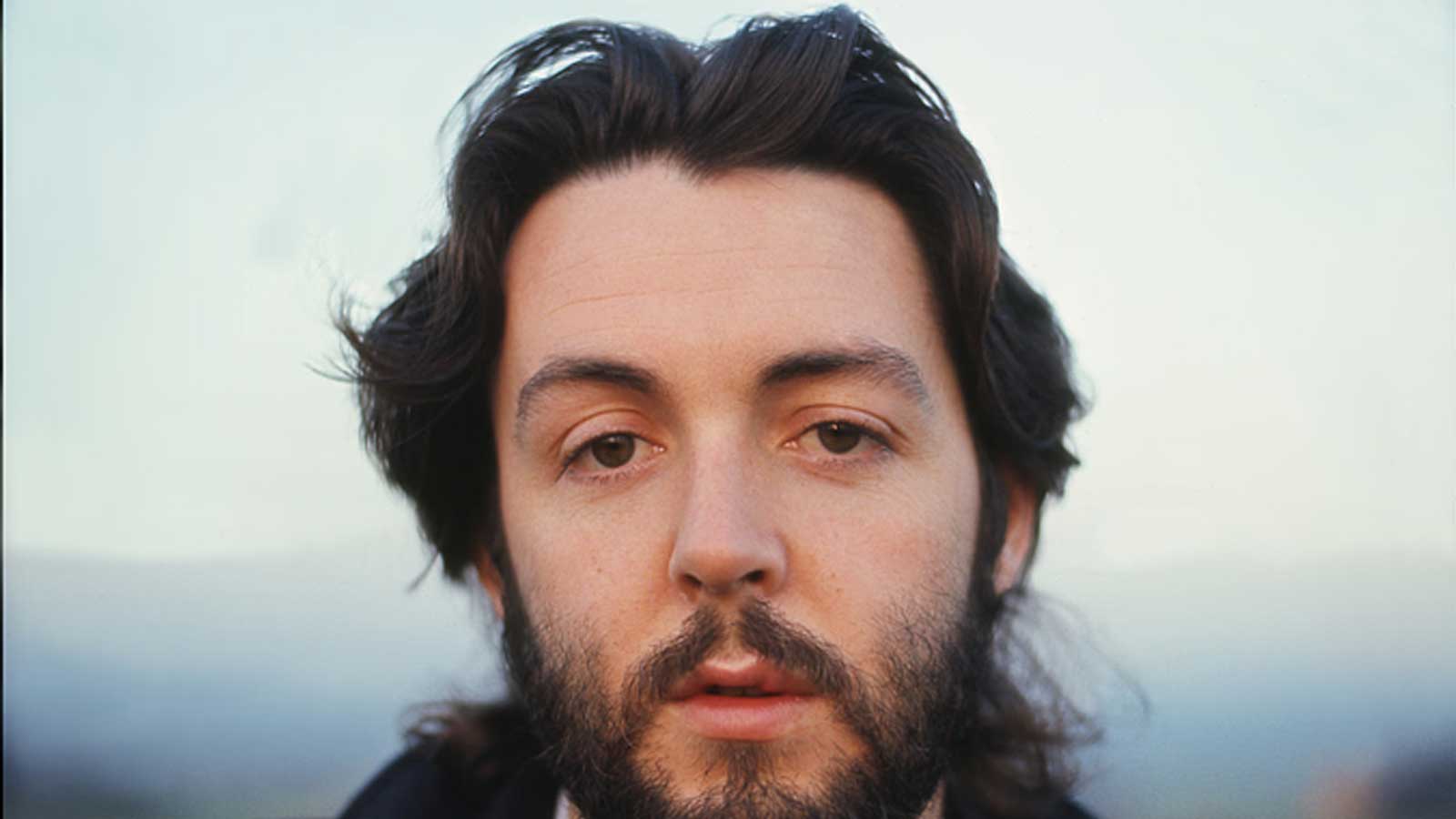As I began my virtual interview with OVW superstar and subject of Netflix's Wrestlers docuseries Jesse Godderz, he showed that kayfabe isn't dead after all.
“How are you doing today?” I asked.
“Not too bad, I'm just about getting ready to go to the gym and work on these sweet muscles,” Godderz replied as he flexed his (huge) right bicep.
As a wrestling fan who recently returned after a 10-ish year break (a John Cena action figure I found at a thrift shop resided next to me during this interview), Godderz reminded me a bit of Austin Theory. Godderz is a bit more seasoned than Theory, but carries the same swagger that the young WWE star has. But once it came to business, Godderz was ready to talk the ins and outs of the wrestling industry.
That is, after he threw some shade Cena's way after I mentioned the action figure. “Be honest, who looks better?” he asked.
Of course, I couldn't say Cena — especially given his appearance in recent years. I asked if he could take him in a match, to which he replied, “Absolutely. Yes. Without a doubt.”
Granted, there was a non-kayfabe reason for this. “I think he's at a point in his career right now where he's very giving,” Godderz pointed out.
And he's not wrong. Since joining Hollywood full-time and becoming an attraction for WWE, whenever Cena returns, it's to put over (or lose to) his opponent. That includes Roman Reigns (x2), Austin Theory, etc. Who knows, L.A. Knight may join that list soon, too.
“You've seen the last couple of matches that he's been [in], I mean, he's doing the job for Austin Theory. And he's doing great work with The Miz, too, even in the promos and stuff. He's putting a lot of people over, you know what I mean? So he's definitely passing the torch,” Godderz explained.
Both a reality TV star (he appeared on Big Brother) and a professional wrestling champion, Godderz was eager to dive into the Wrestlers Netflix series.
Jesse Godderz-Wrestlers interview

ClutchPoints: I know you've done reality TV in the past, and you're used to be on camera in general, but was doing Wrestlers any different?
Jessie Godderz: Yes, absolutely. I mean, you're lighting the curtain on fire, cause you guys aren't just seeing us once we go out [and perform] anymore, you're seeing us when we go back through the curtain, talk with the guys, get in our car and then head home.
Being at home is very intimate, and I think that's what you're able to see on Wrestlers because it's real and it's about as raw as you can get. And there's guys that are struggling, whether it be financially, through their relationships, maybe their body's hurting, you know, and everything's relatable.
I think that's the big draw and that's the big appeal — it's like the catch-all for the casual viewer because if they're flipping through it and they see something like that, granted the action, the sexiness of it and our outfits and our gear and stuff like that has some appeal to it, but I don't think it's like any other docuseries. I don't think it's like any other kind of wrestling documentary either. I don't think anybody's been able to capture it like Greg Whiteley has been able to do and his entire team and production team, which is being showcased and the true reason why he has such success in the other projects that he has — with Last Chance U and Cheer. So I think this is gonna definitely resonate with a lot of individuals.
But when it comes to you, the way they shot it and the questions that they had and things like that, they just wanted to have a real and true response and answer, but what they're actually capturing is — it's not on Big Brother anymore because on Big Brother, there's a handful of beds and you're talking to people that you just met, maybe a week or two ago and stuff like that — coming into my family's house or you're going into Cash Flow's house, or Hailey J's house and her personal relationships.
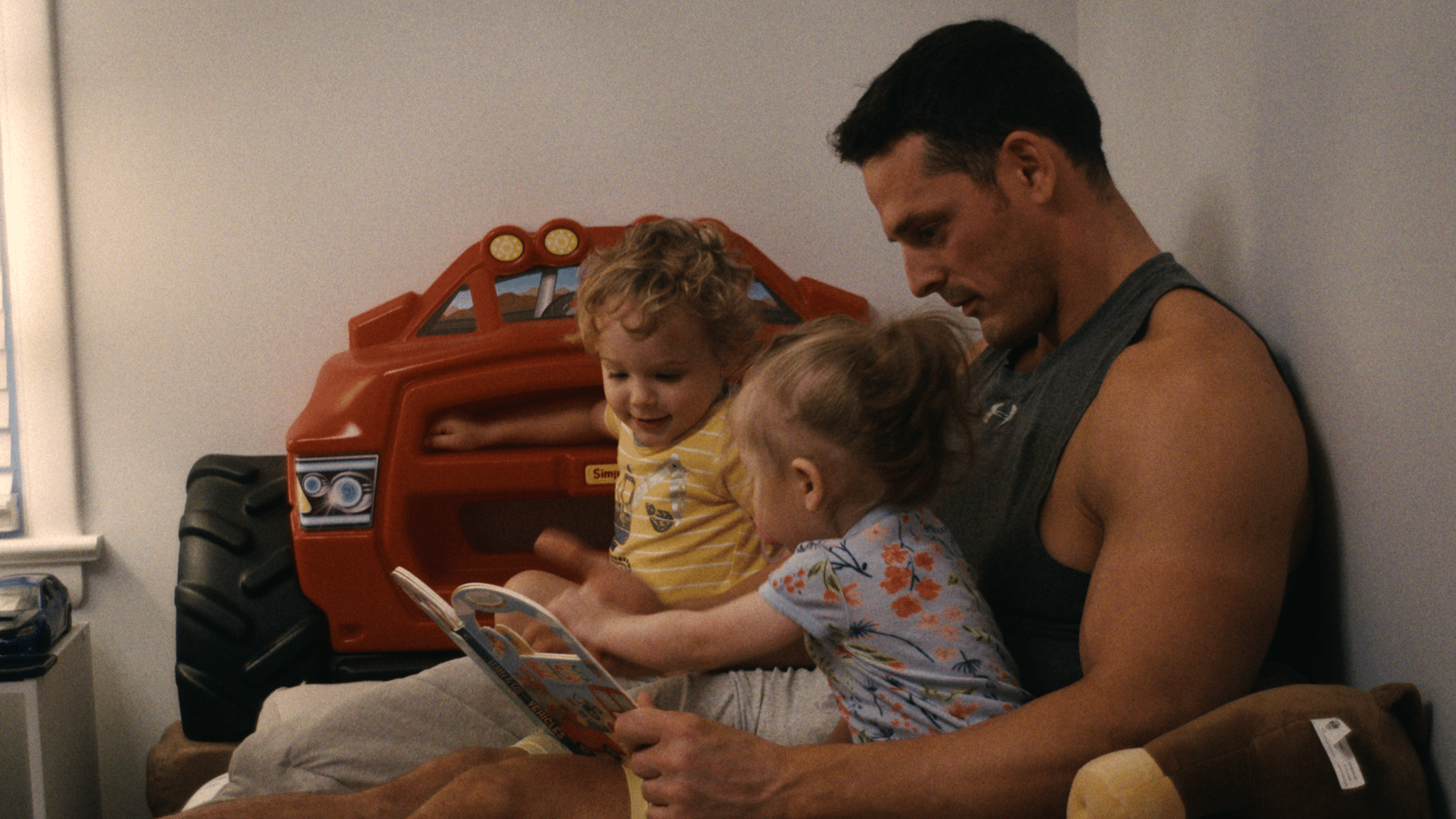
[On] Big Brother, there's cameras already set up everywhere. So that was completely different and there's nobody on the other side of them trying to talk to you or talk through what you're kind of going through. Whereas with this, the success that Greg has is because of the questions and the probing and the investment that he's getting from the characters. So [it's] night and day.
Granted, it's still reality television, but this docuseries is his wheelhouse. And I think it's beautifully done, and that's the best word to put it just like beautiful, the entire project sincerely.
CP: What's something about your industry that casual fans and viewers don't know?
JG: The love that we all have for one another. One, everything on television is fake. Everything. TV's fake. These are shows. There's writers. There's actors. It's fake. It's all fake.
This [professional wrestling] is something where we're making a livelihood by trying to depict and put on an art and performance through entertainment where we're physically beating each other up. The average bar fight is going to last 30 seconds. We now have to make it last eight minutes and that's where the commercial break and then have a good enough hook to carry you through to come back up when, when television hits.
The only reason I say that is now we have to keep each other safe because we literally either need to do it the very next week live or potentially the very next day on a house show in front of a live crowd. And if we get hurt on TV or if we get hurt at a live show or a house show, a couple of things are going to have to happen and we're going to have to call an audible when it comes to storyline, or we're not going to be able to wrestle and then we're not going to be able to get paid and then we're not going to be able to provide for our family. And it's just a downward slope after that.
So the love that we have all for one another is because we are all true professionals. So in all these other federations, whether it's a WWE, ROH, New Japan [Pro Wrestling], Impact Wrestling, that's why the roster is so close and tight-knit because they're all taking care of one another.
Granted, the overall encompassing story is the battle between the two minds of the business entrepreneur that's coming in and trying to finance and float the whole thing, and Al Snow who has the love for it and doesn't want his dream to die and wants to actually have his body at work be long lasting well after he's here. But when it comes to how much we actually try and care about each other, to keep each other safe.
And then, granted, the fact that everybody's the underdog trying to make it [to the big leagues] and use OVW as a vehicle or a platform to get somewhere else. We're just trying to build our brand and then also hone our character — to have people care about us going somewhere else in our career, you know? Cause I think that's the wrestling business as a whole. You want to be the top star. You want to be the biggest draw. You want to make the most money. You want to have the most notoriety, fame and followers and all that kind of stuff, because then that's going to correlate to eyeballs on you and just your appeal.
You know, Tom Cruise could be in Louisville, Kentucky, but if nobody promotes him, nobody's going to show up. Tom Cruise is a draw, what's your name worth on a piece of paper to make people get out of their home, go buy a ticket and end up at Davis Arena or the Staples Center in L.A. or out in New York. So the appeal that needs to happen. There's a lot of different things inside there, but I'd say those two [or] three of them would be the biggest.
CP: You spoke about how tight-knit you all are. But when delivering promos or working a match with someone you like, is it ever hard to not crack a smile?
JG: I purposefully try to make other people laugh, one thousand percent [smiles]. Because then, you got to think if you get them so good, well, granted, inside jokes aren't going to work to your to your point, so if only me and the other person knows about it, then it's going to just make them laugh and whatnot, but I want everybody to be a part of it and still be able to say something that everybody knows or talks about and then make some crack [smiles].
That's the beauty of it — it's live and it's real. So this isn't acting, it's reacting. You're reacting to what's real. If somebody misses me with a punch and I sell it, you're like, “Oh, this is fake,” and you'll turn the channel. Whereas if I literally call him out, like, “Hey, you just missed me,” and I flip him off or hit him back or then beat him down because he missed me and then say like, “Oh, he can't even hit me,” then it makes more sense. And people are like, “This is real,” in that sense, because all we're trying to do is suspend the disbelief of the ambience of professional wrestling and just the fact [that] it's entertainment, it's just a different form of entertainment.
But we don't want to disrespect your intelligence as a viewer to then make you believe in something that you blatantly see didn't happen, [like] if somebody's selling something [when] they didn't get [hit]. Because once we start disrespecting you, that might have been the reason why you started to tune out because it wasn't really appealing to you anymore.
CP: I know some bands talk about preferring a smaller intimate setting, whether it be a theater or a bar, but for wrestling, is there something that appeals to you about OVW's smaller shows in comparison to a WWE WrestleMania like the one in Philadelphia next year?
JG: I enjoy both because the roar of 15,000 people is completely different than the roar of 150.
But if you can't get 150 people to cheer and/or boo you when you're trying to elicit a true response at one particular point, whether it be the match or the finish, then there's no reason or justification for you to be in front of 15,000 or a hundred thousand, which is sometimes what those WrestleMania numbers kind of come out to be — which is crazy.
And at that point, everybody just turns into a little dot or a little speck in the crowd [laughs] anyways, and you're just trying to focus on your task at hand, which is going out there performing. But yeah, you want to be able to showcase your abilities in professional wrestling whether it's the third row or the 300th row.
That's why OVW is what it is. [For] one, we're not really performing for the fans that are there in that small venue. We're performing for everybody on the other side of the camera because it's live. If it was a house show for OVW, then yeah, you only are performing for the people inside the building. There's no cameras and you need to elicit the response from the people that are there and get them as involved as possible. And then there's more theatrics and stuff like that and bouncing around and whatnot. [There are] a lot looser of parameters and you can perform and actually kind of get away with a lot more. Whereas with TV, everything needs to be tight. Everything needs to be like a certain angle. Everything needs to be captured. Because you're putting on a TV show.
But I genuinely like both because if you can do it with 150 people, 200 or 400, then you can definitely do it with any amount more than that for sure.
CP: It's interesting you point that out because I recently went to a SmackDown taping and that's on live TV. So everything is so concise, you know, the production teams constantly switching things out. Whereas I always hear the house shows are a lot of fun. I think they're coming to my area that in December, so I want to kind of experience that too, because of what it sounds like is that it's a little looser and more fun.
JG: It's night and day. It's not even comparable because they're trying to put on the storylines and show [during TV tapings like SmackDown], and that's the commercial [to] draw you to the house show.
So you would probably see your different moves, different characters, different antics, different theatrics, different pantomiming from the same people that you don't realize that they even do [during] a house show, as opposed to being on television. So I would wholeheartedly definitely encourage you to go, because, and you'll see it, you'll be like, “Oh man, this [is differen]t,” [and] it's a lot more enjoyable because they're doing it for you.
Their sole purpose is to entertain the people that actually bought the tickets there. Whereas when it comes to the television shows, I'm not saying that they don't care about you, [but] what I'm saying is they're trying to put on a TV show the same way that any of these sitcoms have live audiences. They're not doing it for the live audience, they're doing it for the response of the live audience during focal points during the storytelling, you know?
CP: I know you've been with OVW for a few years now, but you also jumped around a lot to different promotions a few years back. I know a lot of wrestlers have done that, and unless you're somebody like John Cena who has been with one company, what does that journey look like?
JG: It's more so because we're our own brand, we're our own character. So whatever federation, whether it's WWE, AEW, Impact Wrestling, OVW, New Japan, you know, ROH, any of these have to see value in you to bring you into their company. You have to be a draw or they have [to have] a storyline or they have [to have] some idea for you that they think that they'd be able to make money off of you. Do you see what I'm saying?
During that little stint of my life, I think it was like in 2017, I had multiple offers for tons of different opportunities, especially in professional wrestling that I just didn't take up because I was just kind of exercising a couple other projects that I was doing at the time that I didn't want to miss out on.
Granted, it was just that little stint, but they just took priority at that time. Even Lucha Underground tried to have me sign a contract that was like seven years — so that would have been pretty crazy. There's a handful of things. Yes, it ebbs and flows, but at the end of the day, it's you as a character can then be inputted in any game, if you will, or any company. You just have to be sharp and able-bodied to be able to do it and be able to actually entertain.
That's why I came back [to OVW]. I talked with Al and we have the same vision and I wanted to make sure that how I was dealt with and how I was handled. I was going to be the face of the company and then help it move forward and go from wherever they were at — [which was] at a bunch of different streaming services, at a different bunch of different networks, bring a bunch more notoriety, continue to promote it, continue to push it out there, use my marketing machine and like everything that I can to help promote it, and then bring in different eyes and different people, which then kind of brought in different owners and different opportunities such as Wrestlers.
Obviously, [Wrestlers] sprouted from that. [It] took about three years with OVW. This last stint took a little bit longer than I wish it would have taken [smiles], but I'm super stoked. And I can't even think of a bigger platform than Netflix. If it even has a fraction of the same success as Greg Whiteley's Cheer [and] Last Chance U, we're off to the races.
To say that we're not going to be — when I say “we,” [I mean] OVW as a company — within the top three household names for professional wrestling, I think that that's a lie because I guarantee you [we] will be and we'll see what actually unfolds.
CP: It sounds like upon your return and latest stint in OVW, you've taken on more of a leadership role. Do you feel like you've finally hit your groove with your career and this is where you want to be?
JG: Yeah, absolutely. And these guys at OVW have the same vision that I do for where I want to be right now. And with the storylines, like, there's a reason why James Storm, Chris Masters, Elijah Burke, Nick Dinsmore (Eugene), all those guys came to face me and wrestle me with where I was at — because it can just continue to legitimize me as the National Champion here at OVW, and now obviously with the world's championship.
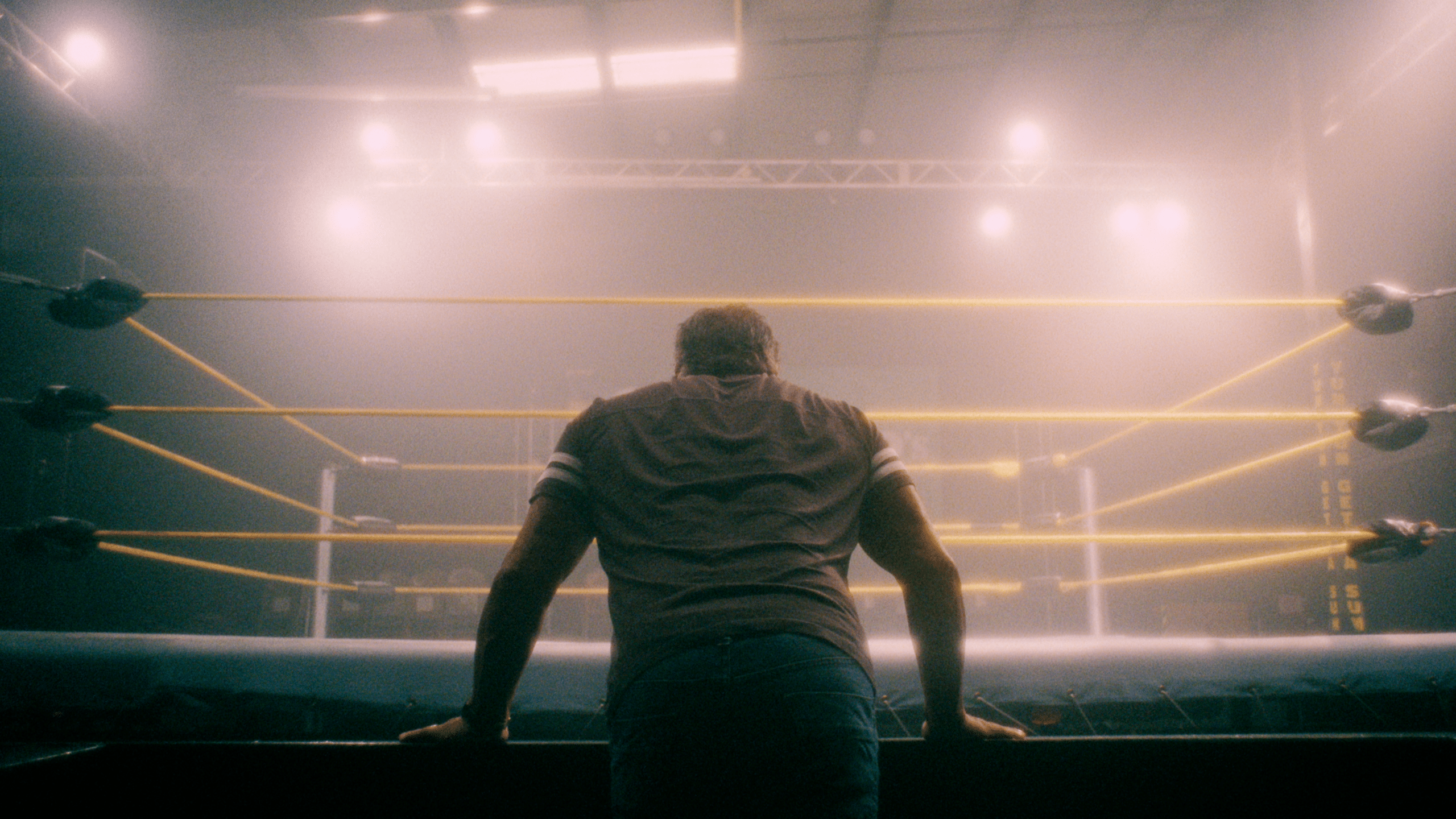
Actually, Al's true intent for the National Championship is to try and acquire the World's Heavyweight Championship. And to say that there's not money when it comes to a draw between EC3 and Mr. PEC-Tacular, Jessie Godderz myself, I think there definitely is. And that's what we're already flirting with. And there's a lot of life left just in that storyline alone. What direction it's going to [go], what's going to come of it, obviously, we'll see, but there's a lot of legs left in it.
I'm not turning away from any other opportunities, though. I'm still a businessman, and if there's another platform, whether it comes to a federation such as AEW, WWE, Impact Wrestling, ROH, New Japan, any of those federations as well that say, “Hey, here's what we could do for you. This is what we kind of have for an idea,” all right, cool. Let's sit down and talk about it, you know?
It's night and day. 10 years ago, just like anything else, being a professional now at professional wrestling is completely different than 10 years ago, to your point, absolutely.
And what that looks like just with my mind and how much time I have left, what I want to continue to do, my body at work, what I'm willing to do, where I'm willing to go, how far or long I'm willing to be away from my family and stuff, all that stuff kind of gets taken into consideration for sure.
CP: You mentioned Chris Masters, whom you've wrestled. What goes into selling the “Master Lock” move? I know Bobby Lashley uses it right now as a finishing move as well, and I imagine you have to do a lot of acting when taking that move.
JG: So I was an amateur wrestler. [The] “Master Lock,” it's definitely a Full Nelson [hold], so your neck getting pushed down is not a feeling [you enjoy]. How do you sell it? You sell it cause you're legitimately probably in pain because once he starts pushing down on your head, which is why like you kind of see that [laughs]. It's not a good move.
I was an amateur wrestler and I used Half Nelsons all the time, but a Full Nelson is a completely different beast — especially when somebody is as intimidating and at the stature of a Chris Masters. I think he's like 6'5″, 6'6″, so yeah, not a fun time. And then Bobby Lashley's made out of stone, so that's not a good take either [smiles].
CP: I wasn't sure how much pressure you really were applying, but I guess it would be hard to really sell the move from his perspective if you're not pushing down a little bit…
JG: Exactly. I was going to say, yes, there's creative liberty [laughs], but like, if it's not being sold, and he's physically throwing you around — as I'm sure you've seen — and then your head's getting pushed forward, it's a probably a easier sell than you think due to the realness of it [smiles].
CP: In Wrestlers, I know Al Snow talks about wrestlers wanting to go from OVW to WWE or even AEW, and you just talked about that. I don't know how it works behind the scenes, I know the different companies sign wrestlers all the time, but is that jump something that you feel is attainable in general?
JG: Yeah, it's exactly that. People aren't too hard to get ahold of when it comes to social media as of right now. I'm sure everybody has an email or a phone number or a friend that's either already there [at WWE, AEW, or another bigger promotion], or they've maybe done a tryout of some sort.
And there [are] talent scouts and stuff like that just like any other [industry], but then you'll just have to go through the hoops that they want you to go through or they wanna see how you actually perform and then see where you're at to then kind of peg you at where they can place you because they're not going to want to have a bad product, but if they see value in anybody.
If Tom Cruise today says, “Hey, I want to be a professional wrestler,” people would be dumb not to hire him or negotiate terms [to] where he started wrestling. The same way with Jake Paul (Logan Paul) coming in. The fellow probably didn't have a clue in the world [how to professionally wrestle], but he does know how to entertain, you know? And at the end of the day, people think that they can draw money off of him and that's what this is. Everything is eyeballs — we're all fighting for everybody's eyeballs.
And when it comes to having the platform of Wrestlers being on Netflix, there's going to be more people that are watching that, which then is going to correlate to people watching OVW. So I think it's going to be successful for everybody and then their star power is going to go up.
So with that star power going up to whatever capacity they know how to negotiate a contract, obviously it's going to be up to them. So they could sign something that's for a dollar a day [laughs], or a couple hundred thousand dollars, who knows what that'll look like? Obviously, only the organization would, and then they just come to terms with it. [The] biggest thing is you got to be able to draw. People have to know who you are.
CP: You're not old, I think Roman Reigns is around the same age as you. As of now, not accounting for injuries, how long do you think you can go? And I know a big complaint with the aforementioned Roman Reigns is his part-time schedule. I personally have no issue with it — I think there's only so many people he can face before you're just repeating matches — but I'm curious on your thoughts on that because he's around the same age and he's had some health issues in the past, but he's got a schedule where he defends his title maybe 10 times a year at most, do you have issues with that?
JG: So, I'm wrestling every week. Yeah, there's different people, different characters, [and] different brands [that] have to be used to different capacities, obviously — I think Diamond Dallas Page didn't even start his actual professional wrestling career until right around 40 and then had the tremendous success that he did just because of the showmanship and the entertainment aspects that he was able to bring.

When it comes to myself, obviously health is a huge concern, first and foremost. I have four kids that I want to see grow up, you know, and I want to be able to pick them up. I want to be able to interact with them. I want to be able to carry [them]. It's going to be crushing to me, the last day that my daughter wants me to pick her up, you know? That's something that I want to be able to do.
There [have] been times where I've gotten done wrestling at OVW and I have to drive seven hours back home, nobody knows that kind of stuff. I moved down to Greenville, South Carolina. So I'll drive seven hours up in the morning of Thursday, wrestle the show for like four or five, six hours that we're there, I'll also work out right before I get to the show, and then drive back.
But I've driven back to where my back hurts so much [that] when I get home, I can't make it into bed and I'm sleeping on the floor type stuff. Is that scary? 1000% that's pretty gnarly. Am I fine now? Absolutely. But it's just something where like you take something wrong one time, you know what I mean?
And there are bumps and bruises — I've dislocated my shoulder years and years and years ago when I was first starting out when I was wrestling WFX, but that was something that naturally happened. You start learning what you can't do and make sure that you're not repeating that so you don't have to endure the pain because it's real.
Our bodies are getting thrown around. People are genuinely going through tables. People are getting hit with chairs. People are landing on the floor. People are taking moves. To say that every single one of them is perfect and completely flawless every single time, yes, we're professionals, but you still make one little mistake and you physically feel it.
Luckily enough, I've never really endured anything. I don't want to really see any X-rays of my body to confirm that [laughs], but no, I feel great. And I think by me staying natural and being as mobile and agile as I am — and when I say natural, I'm just saying I haven't had to acquire any additional muscle mass or anything like that at a rapid pace that would change the configuration or how my body is carrying the weight that I have and the muscle mass that I have.
Guys like Batista and Goldberg and Razor Ramon, all these guys were looking crazy, but for myself, personally, I just stay as healthy as possible and just listen to my body.
To your point, the longevity of it. I mean, I think Ric Flair did it until like however old he is (74) [laughs], and I think Chris Jericho is like 50 and some change (52). I think I got plenty of time left, and I just want to make the most of the time.
CP: Are there any wrestlers that are in those bigger promotions that maybe you've worked with in the past or would just love to work with in again? Or is there anybody catch your eye that maybe it's younger?
JG: Yeah, that's a great question.
There's people like Drew McIntyre, who's just a mountain of a man. I've already had matches with him. I've been able to wrestle like Matt and Jeff Hardy. I wrestled Sting — he's [in] AEW right now.
But yeah, there's guys that are coming up, even through NXT, Steiner's kid (Bron Breakker), who's doing a phenomenal job. Any of the Usos I think would be great. It really just depends on the storyline, too. Even for myself to go up against somebody like The Miz would be awesome… [laughs] literally. But “PEC-Tacularly Awesome.” We'll put it that way.
And the only reason I say that is I don't think that's ever been done before. So to say that there's not money in that, and that's what I was getting at — my brand versus The Miz's brand, do you see what I mean? And then with the platform, or the vehicle being WWE, to whatever capacity that actually looks like.
That's all it is. It's just storytelling. It's storylines. But I think that would be awesome for sure.
Mike's [Mizanin (The Miz)] phenomenal and he's red-hot right now, so that would be a lot of fun. [I'm] trying to think of anybody else off the top of my head, but any of the Uso guys — I know can just move.
And then also Seth Rollins, too. He's actually from Iowa as well — I think down in Davenport — and the character that he has is just appealing. And that's what I see it as, what kind of storyline can we get into? What kind of story are we going to tell? Because then that's what's going to elicit and be true and [what] you can actually sink your teeth into. And then [do] we only have four weeks [for our feud], [or] are we only going to have one match?
I hate to say it, but the moves don't matter. It's just like the storytelling matters. Wrestling is the backdrop of everybody's life inside the wrestlers, and that's the appeal because that's what's relatable because people have endured financial struggle, relationship struggles, hating your boss, whatever the case may be. That's why it makes it so relatable so I can get into something where say me and The Miz can cultivate a storyline where I just think I'm better just because of my actual career and all the accolades that I've acquired and then him too. Okay, cool — we might have legs on this and it might be able to go somewhere. But now are we only going to have four weeks or are we going to have six months? So I would love to have the opportunity, though.
And, same for the guys over at AEW, too, or Impact Wrestling. So I just need to make myself undeniable [smiles].
CP: You said you've wrestled Drew McIntyre in the past — was he using the Claymore Kick at that point? And if so, how does that connect? I always wondered how he connects that move because it always looks good.
JG: Everything that Drew does connects [laughs] — everything. And the reason why it sticks in my head as a match [is] because of the physicality that he had.
He's such a big body. Again, 6'5″, 6'6″, like whatever he is, but I think he's like 260-270 [lbs]. [He] is very impactful.
Like he knows that he's on television and everything is there. When I say that, everything's connecting, everything's hitting soft spots, everything's landing, everything's very crisp. So when I'm giving it back to him, I'm not the same stature as him, but I promise you if somebody hits me, I'm hitting them back to be like, “Hey, either you're going to start chilling out or this is how it's going to be the entire rest of the match.”
But that's him at a normal pace. And it is very physical. It is very real. So when I say that Claymore is going to be there, oh, it's there. You're eating it. It's like a chair shot when people are like, “Oh, are chair shots real?” It's like, “Did you see the chair hit me?” There's no smoke and mirrors. This isn't a magic show, okay [laughs]? It's a real chair that they picked up. So absolutely, yes.
He brings it for sure.
Wrestlers is streaming on Netflix.

